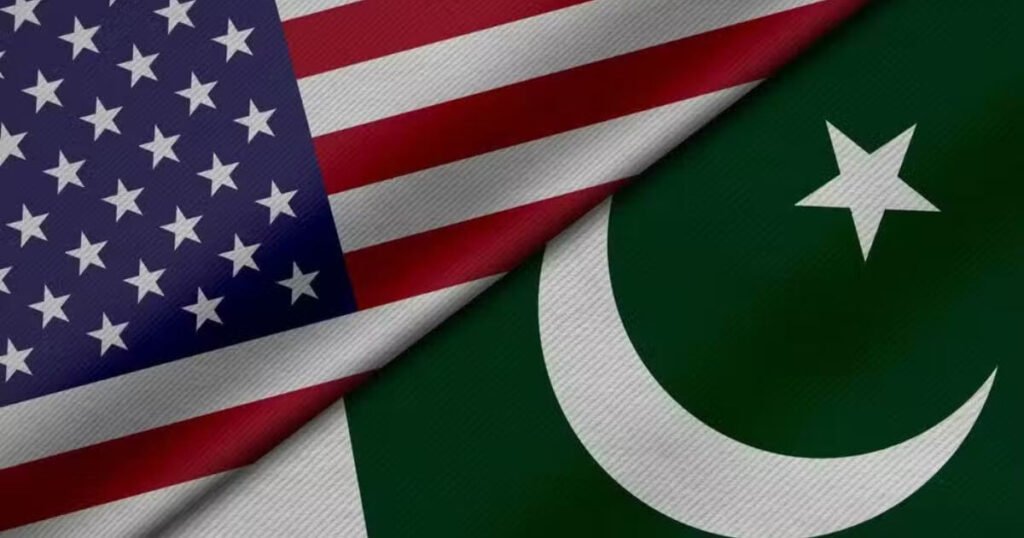The recent Donald Trump claim of “massive” oil reserves in Pakistan has stirred global attention, especially from US investment in Pakistan. American companies are now showing strong interest in Pakistan’s oil, gas, and mineral sector, signaling potential growth for the Pakistan’s energy sector. Following meetings with Ali Pervaiz Malik and support from the US Embassy Pakistan, discussions on exploration bidding rounds 2025 are underway, targeting offshore blocks in the Indus Basin. Experts note that while enthusiasm is high, challenges like oil production decline and past exits of foreign firms highlight the complexities. This surge in attention may reshape Pakistan’s petroleum landscape and foreign investment dynamics.
For more latest news checkout, Pakistan coverage.
US Firms Show Interest
Following Donald Trump’s bold statement about Pakistan’s “massive” oil reserves, US investment in Pakistan has surged. Ali Pervaiz Malik, Pakistan’s Petroleum Minister, held discussions with Natalie A. Baker and the US Embassy Pakistan to strengthen energy cooperation with US firms. American companies now explore opportunities in Pakistan’s oil, gas, and mineral sector, spurred by the potential of new discoveries and lucrative exploration projects. Officials say the embassy will actively facilitate direct linkages between businesses in both countries, aiming to boost confidence in the petroleum sector challenges.
Several exploration bidding rounds 2025 are underway, focusing on both onshore and offshore sites. Key areas include the offshore drilling Indus Basin, which holds promise for new reserves. OGDCL (Oil & Gas Development Company Limited) and other national firms coordinate these efforts, highlighting opportunities for American energy companies. Analysts predict that this interest could revitalize Pakistan’s energy industry and reduce the long-term reliance on imports, potentially reshaping the economic landscape of the Pakistan oil import bill.
Oil and Gas Exploration
Pakistan continues to pursue oil and gas exploration projects across various regions. Offshore blocks in the Indus Basin and onshore basins are being offered for new bids. OGDCL remains the country’s primary driver of exploration, supported by modern technologies and seismic studies. Despite past challenges, the sector seeks to identify untapped oil and gas reserves Pakistan and leverage mineral sector investment to attract foreign capital.
Recent bids target 40 exploration blocks, including high-potential offshore areas. Companies like MOL Group discovered the Makori East field, while OGDCL managed Nashpa field, marking the last significant finds over a decade ago. Shale oil reserves Pakistan also attract attention, with past estimates from US Energy Information Administration (EIA) suggesting 9.1 billion barrels of recoverable shale. These projects may boost domestic production and reduce the oil production decline witnessed since 2018.
Decline of Foreign Companies
Historically, Pakistan struggled to retain foreign energy companies, causing a decline in sector confidence. Shell Plc exited after 75 years in 2023, followed by Kuwait Petroleum Corp. ending its four-decade presence. TotalEnergies SE, Exxon Mobil, and Eni Spa also pulled out due to limited discoveries and operational challenges. These departures highlighted persistent petroleum sector challenges in regulatory, financial, and technical domains.
The departure of these giants contrasts with global competitors. Countries like Saudi Arabia, Russia, United States (comparative reserves) maintain billions of barrels, emphasizing Pakistan’s resource limitations. However, the renewed US investment in Pakistan may reverse the trend, as American firms are showing interest in newly released offshore and onshore blocks. Local companies like Pakistan Petroleum Ltd. play a vital role in coordinating with foreign investors and ensuring smooth project execution.
Pakistan’s Import Dependence
Pakistan currently spends around USD $11 billion annually on crude imports, nearly one-fifth of its total import bill. This heavy reliance on foreign oil exposes the economy to price fluctuations and global market volatility. By boosting domestic production through oil and gas exploration, Pakistan hopes to reduce its Pakistan oil import bill and improve energy security.
Government incentives for exploration bidding rounds 2025 aim to attract foreign capital while encouraging private sector investment. Effective use of reserves, combined with circular debt plan OGDCL, can stabilize domestic energy supply. Analysts argue that even small discoveries can significantly offset imports and provide economic relief, especially during periods of rising international crude prices.
Expert Views on Reserves
Skepticism over massive oil claims
Experts remain cautious about Donald Trump’s claims, citing political motives rather than verified geological evidence. Moin Raza Khan, former CEO of Pakistan Petroleum Ltd., notes that international majors would not have exited if Pakistan had genuinely massive reserves. Comparisons with Saudi Arabia, Russia, United States (comparative reserves) show Pakistan’s limitations, emphasizing the need for careful verification before making investment decisions.
To get all the latest news, click here.
Shale oil potential estimates
Shale oil remains a point of interest, with estimates from US Energy Information Administration (EIA) suggesting 9.1 billion barrels. While promising, experts warn of technical challenges and high extraction costs. Unlocking these reserves could benefit local production and decrease import dependency. OGDCL and foreign firms may lead pilot projects in high-potential basins to validate recoverable volumes.
Future Investment Prospects
The government plans new offshore and onshore exploration bidding rounds 2025 to attract foreign investors. Successful discoveries could transform Pakistan’s energy sector, encouraging US investment in Pakistan and regional partnerships. Increased domestic output will improve energy security and reduce reliance on costly imports.
Renewed interest from US firms may also expand mineral sector investment, creating additional economic benefits. Experts predict that careful management and cooperation with local companies like OGDCL and Pakistan Petroleum Ltd. could make Pakistan an attractive destination for global energy players, balancing growth with sustainable development.
Regional Energy Context
Pakistan’s energy developments occur amid a complex regional landscape. Rising Indian crude imports and geopolitical tensions influence investment decisions. Energy trade cooperation Qswith the US could shift regional dynamics, while Pakistan’s exploration success may enable future energy exports.
By improving domestic energy production and attracting foreign expertise, Pakistan can become a more resilient energy hub in South Asia. Balancing domestic demand with regional opportunities will be key to long-term growth, making the Pakistan’s energy sector a strategic priority for both domestic and international stakeholders.
To Get all the news and updates from Pakistan, click here.
Frequently Asked Questions (FAQs)
Where are the largest oil reserves in the United States?
The largest oil reserves in the US are primarily in Texas, North Dakota, and Alaska.
What is the oil reserve of Pakistan?
Pakistan has an estimated 9.1 billion barrels of recoverable shale oil.
What is the oil reserve of India?
India’s recoverable oil reserves are around 5.7 billion barrels.
What is the meaning of oil reserves?
Oil reserves are quantities of crude oil that can be economically extracted from the ground.
Does the US have more oil than Saudi Arabia?
No, Saudi Arabia holds significantly larger recoverable oil reserves than the United States.








